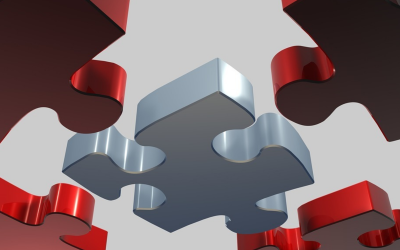When you think of Private Mortgage Insurance (PMI), your first reaction might be a sigh of frustration. After all, it’s an extra cost added to your monthly mortgage payment. But what if I told you that PMI could actually be one of the most powerful tools in your arsenal for building wealth? That’s right—PMI isn’t just a financial obligation; it can be a gateway to homeownership that can set you on the path to long-term financial growth.
The Misunderstood Role of PMI
PMI often gets a bad rap. Many homebuyers see it as an unnecessary burden or a penalty for not having a large down payment. But here’s the reality: PMI is what allows you to become a homeowner sooner, even if you haven’t saved up the traditional 20% down payment.
In today’s market, where home prices are on the rise, saving 20% can take years. During that time, you could be missing out on the opportunity to start building equity in a home. PMI is designed to protect the lender, but it also serves as a bridge for you to enter the housing market with as little as 3% to 5% down. This means you don’t have to wait years to save a significant amount before buying your first home.
The Power of Early Homeownership
Owning a home is one of the most effective ways to build wealth over time. When you buy a home, you’re not just securing a place to live; you’re making an investment in your future. Every mortgage payment you make builds equity, which is the portion of the home that you actually own. As property values increase, so does your equity—essentially growing your wealth without any extra effort on your part.
By using PMI to buy a home sooner, you’re getting a head start on this wealth-building process. Instead of paying rent, where 100% of your payment goes to your landlord, you’re paying toward something that you own.
Rising Home Values: Your Wealth Grows with the Market
One of the biggest advantages of owning a home is that it appreciates in value over time. While the real estate market can fluctuate, history shows that property values generally trend upward over the long term. This means that the sooner you buy a home, the sooner you can start benefiting from this appreciation.
Let’s consider an example: Imagine you buy a home today for $300,000 with a 5% down payment. With PMI, you’re able to secure a mortgage and move into your new home. Over the next five years, the value of your home increases by 3% annually. After five years, your home is now worth approximately $347,000. That’s an increase of $47,000 in your home’s value—money that contributes directly to your net worth.
If you had waited to save a 20% down payment, not only would you have missed out on this appreciation, but you also would have spent those years paying rent, contributing nothing to your long-term wealth.
PMI: A Temporary Tool with Long-Term Benefits
One of the best things about PMI is that it’s not a permanent expense. Once you’ve built enough equity in your home—typically when you’ve paid down the mortgage to 78% of the home’s original value—PMI is automatically canceled. You can also request cancellation once your equity reaches 20%, assuming your payments are up-to-date.
This means that while PMI helps you get into a home sooner, it doesn’t have to be a long-term cost. It’s a temporary tool that allows you to accelerate your path to homeownership and wealth building. And once it’s gone, you’ll have a lower monthly mortgage payment, increasing the amount of money you can save, invest, or put toward other financial goals.
Building Wealth for the Future
Beyond the financial benefits, owning a home also provides stability and the potential for generational wealth. As you pay down your mortgage and build equity, you’re creating an asset that can be passed down to your children or used to fund other investments.
Moreover, the forced savings aspect of a mortgage payment—especially one that includes PMI—ensures that you’re consistently building equity, even if you’re not actively thinking about it. Each payment brings you closer to owning your home outright, and as your equity grows, so does your financial security.
Conclusion: Embrace PMI as a Wealth-Building Tool
Instead of viewing PMI as a burden, start seeing it for what it truly is: a powerful tool that can help you build wealth through homeownership. By allowing you to buy a home with a smaller down payment, PMI gives you the opportunity to start growing your equity sooner rather than later.
Yes, it’s an extra cost, but it’s also an investment in your future—a temporary expense that paves the way for long-term financial growth. So, if you’re considering buying a home but worried about the down payment, remember that PMI can be your greatest ally in achieving your homeownership and wealth-building goals.
Don’t let the misconception of PMI hold you back. Embrace it as a stepping stone toward financial independence and security, and watch as your wealth grows along with your home’s value. With PMI, you’re not just buying a home—you’re investing in your future.
Navigating a seller’s market: Tips for buying a home
Buying a home is one of the biggest investments you will ever make in your life. In a seller's market, where the demand for homes exceeds the supply, the process of finding and purchasing a home can be even more challenging. With limited housing inventory, potential...
Should I buy a new home or an old home?
Buying an older home can be a dream come true for many homeowners. The charm and character of an older home can be hard to resist. However, it's important to weigh the pros and cons before making a decision. Here are the top 5 pros and top 5 cons of buying an older...
Is it Simple to Qualify for a Home Loan?
One of the top questions we receive is, “How do I know if I can buy a house?” The most straightforward route is to have enough to buy the home outright. This does not work for the majority of us. Since most of us require financing to purchase our homes, below is a...




